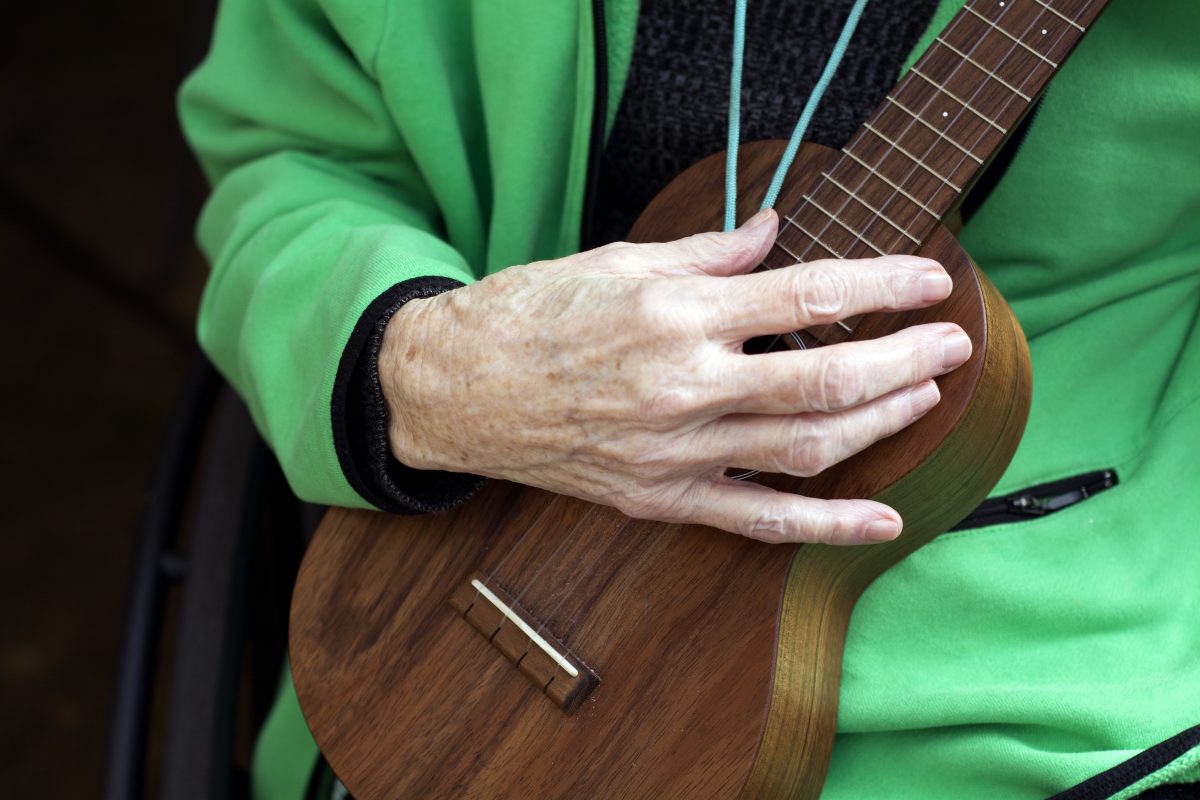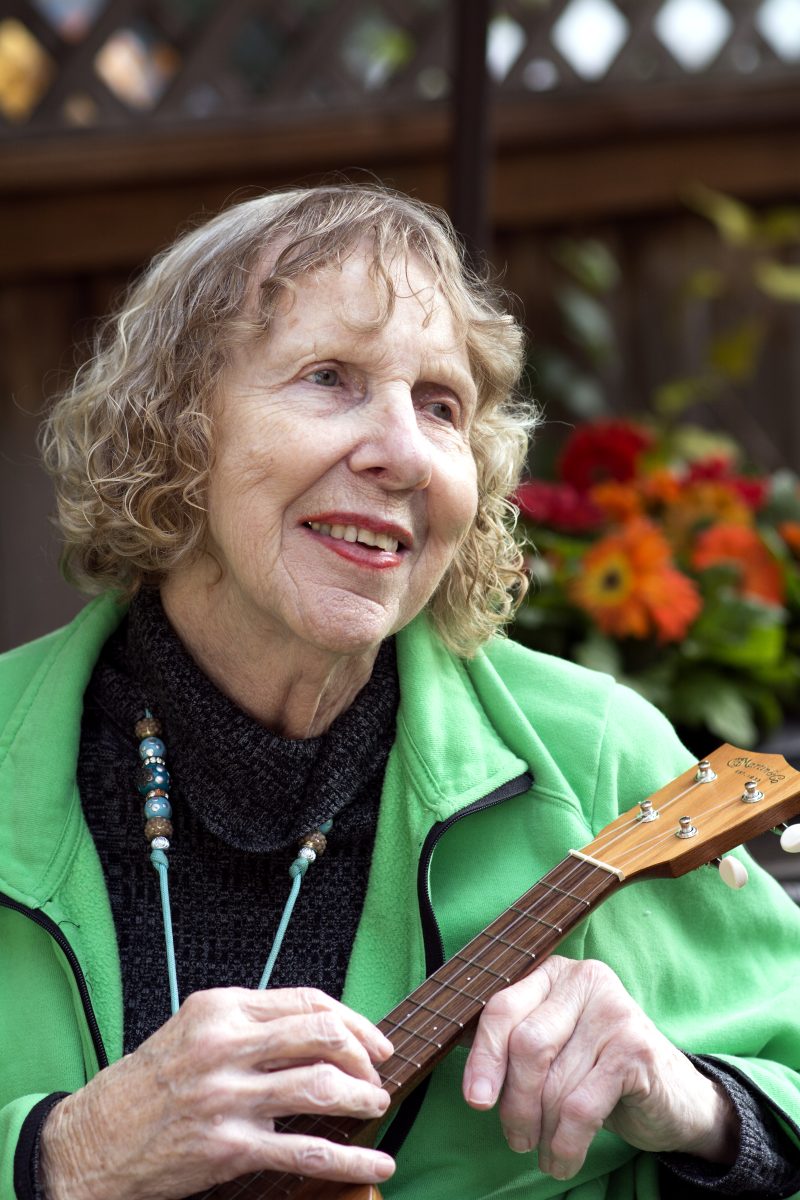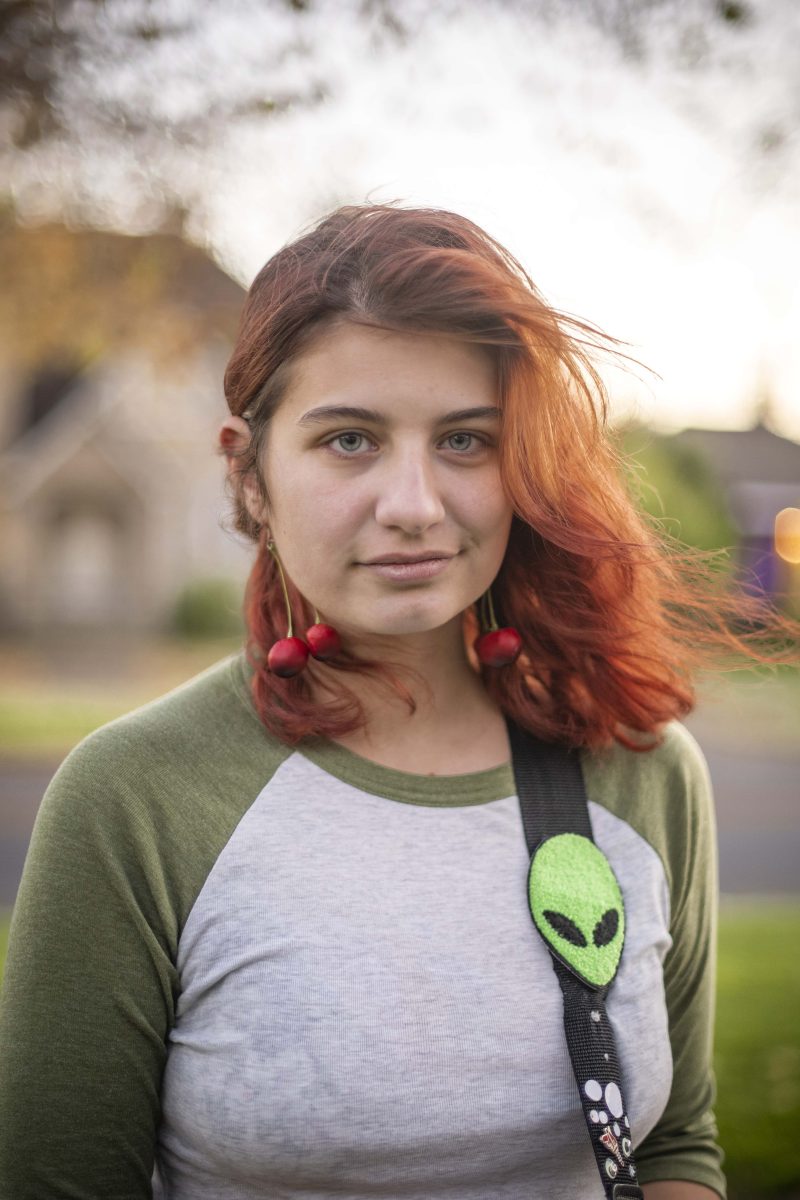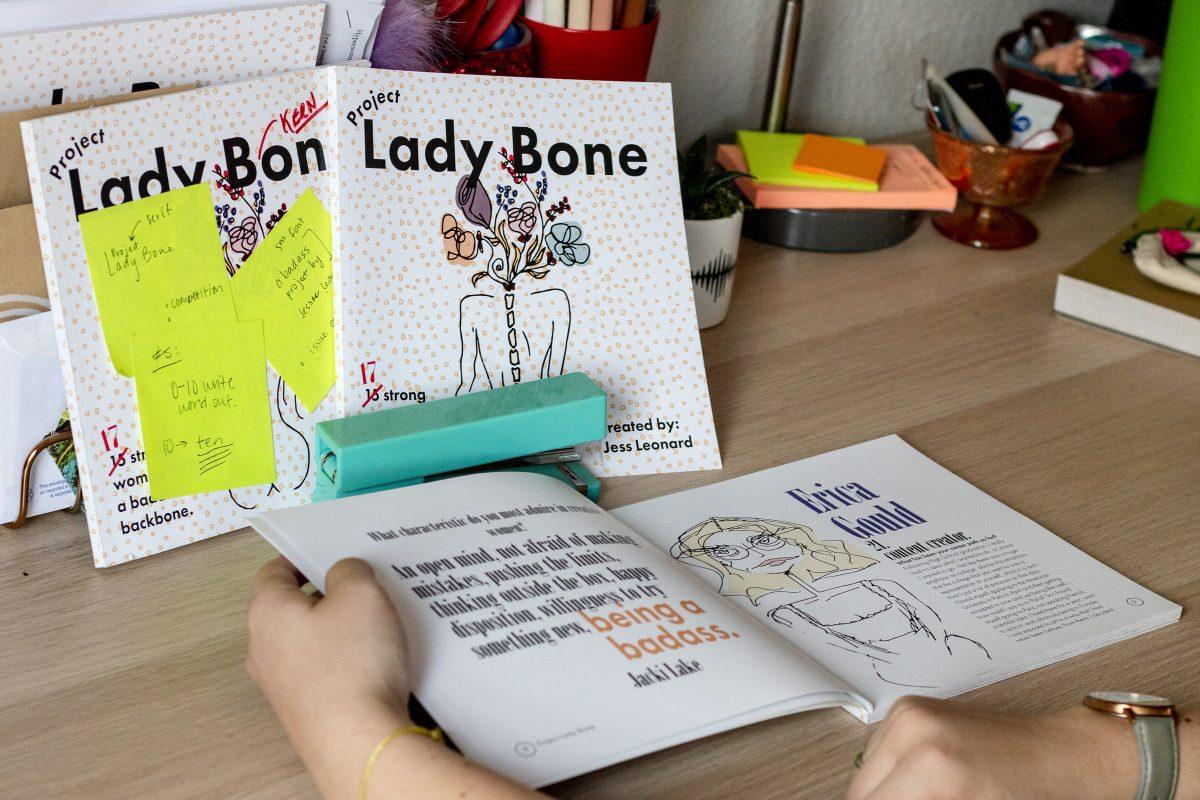Words by Aliya Hall, Photos by KJ Hellis
[dropcap]S[/dropcap]itting in a wheelchair, Judy Clements holds her ukulele close to her body as she strums out a 1940s tune. She doesn’t always remember the lyrics to the verses, but when it’s time for the chorus, her voice steadily and softly intertwines with the tender plucking of the strings. Clements relies on her memory and ears for the chord progressions, as she has lost her eyesight due to the progression of multiple sclerosis, a disease she has been living with for 50 years.
Diagnosed when she was 28 years old, Clements describes MS as “debilitating.” The disease is unpredictable and targets the central nervous system, disrupting the informational flow between the brain and the body, according to the National Multiple Sclerosis Society. While the cause of MS is still unknown, the Society says scientists believe it is triggered by an “unidentified environmental factor” within a person who is “genetically predisposed to respond.” Clements has heard the disease referred to as the “Disease of Young Adults” because it typically affects people within their 20s and 30s.
For Clements, MS impacts her optic nerves and spinal columns, which led to her blindness and the demobilization of her legs. However, the disease was slow going. Her vision would come and go throughout weeks, and her leg would experience a numbness that would also leave and return. When the doctors didn’t have an answer for Clements about what was happening to her, she went to a neurologist who diagnosed her.
“It was awful when they gave me the diagnosis,” she says. She was told about the crippling effects that MS can have, but that it could depended on how she took care of herself. She was advised to stay out of the sunlight, but she said she didn’t heed his warnings, and it got worse. While Clements has gone to support groups before and described some as being “helpful and uplifting,” she initially turned down invitations upon discovering they only talked about the disease; she thought it “sounded too depressing,” and therefore didn’t want to go.
“I went to school instead, and it was much more what I needed to be doing,” she says.
Clements was working until she received her diagnosis, along with raising three children. When she lost her eyesight completely in her 30s and had to stop driving, she had to quit working as well. As it became clear that her life was going to dramatically change, her first husband left because he “couldn’t handle taking care of someone who needed a lot of help.”
After the divorce, Clements moved her family next door to her mother in Southern California who helped with transportation. “She was our support network,” Clements says. “She worked but she always had time for us.”
However, after a few years Clements made a change in her life and decided to move up to the Bay Area close to Pacific College.
Clements didn’t know what to do next with her life, until her sister brought up the prospect of taking classes at the local college. “I thought, ‘How could I do that?’ She said I could get a degree in five years,” says Clements. “I said, ‘Five years? I’ll be in my 40s!’ She said, ‘How old will you be in five years if you don’t go back to school?’”
Clements started off taking ceramics and gym because she was “scared to take anything with a textbook” due to her disability, but then she learned the school provided readers and offered books on tape.
“I thought I was smarter than some of these 18-year-olds, and so I did it for a couple of years,” she says.
Clements transferred to San Francisco after finishing up her general education credits, and received a degree in psychology. She discovered she liked counseling and went to graduate school for her master’s, and got her license as a social worker.
“[I] loved it,” she says. “Loved going back to school. Both of my sisters had gone to college and I knew I wasn’t quite as smart as they were, but I knew I was persistent.” Her persistence helped her achieve her next mission: getting hired.
“No one really wanted to hire me because they didn’t know if I could do anything,” she says. “I had no job experience as a blind person.”
Clements started with volunteer work before bouncing around jobs. She worked for over 18 years at various places, including at a family counseling agency and a women’s clinic. However, when she began to lose mobility in her legs, she had to stop.
“Blindness wasn’t a problem, but getting to work with the wheelchair was more of an issue,” she says. She equated losing mobility to a leg falling asleep. She woke up one day and couldn’t feel it, and then it never woke up.
At that point, Clements had married her second husband, a “wonderful” man who “didn’t care if [she] was blind at all.” She was married to him for 25 years until he died. After his passing she moved to Oregon to be with her three children. One of her daughters, Karen, now owns the assisted living facility, Sherwood Pines in Veneta, where Clements has been living.
“For anyone with a disability, remember that they don’t need pity,” said Clements.
Besides visits and telephone calls with her family, Clements keeps busy with audio books and the activities that Sherwood Pines hosts such as music groups. Music has a special place in Clement’s life, as she spends a lot of her free time playing ukulele — one of which is a new acoustic electric that she is proud of. She started to play again eight years ago when her daughter in Springfield bought her an ukulele.
“She knew I used to play guitar, but I had to stop because I couldn’t hold it anymore,” she says, “It was just too big.” She has since taken to the ukulele and has learned chord progressions and songs. She describes herself as being “stuck on the 1940s” and the music of George Gershwin and Cole Porter.
“I have a good ear,” she says. “I can hear something and figure out the chords.” Clements has even written a couple of songs that are now being put on CDs for her family by a recording artist in Springfield. For her, it’s important to “live your life” and not let MS affect it.
“For anyone with a disability, remember that they don’t need pity,” she said.
For Clements, MS isn’t and has never been a death sentence for her. She says that it doesn’t have to be a “terrible thing.”
“I have had a good, long, and interesting life.”
Clements holds her ukulele fondly as she soaks in the sun on the patio at Sherwood Pines.













